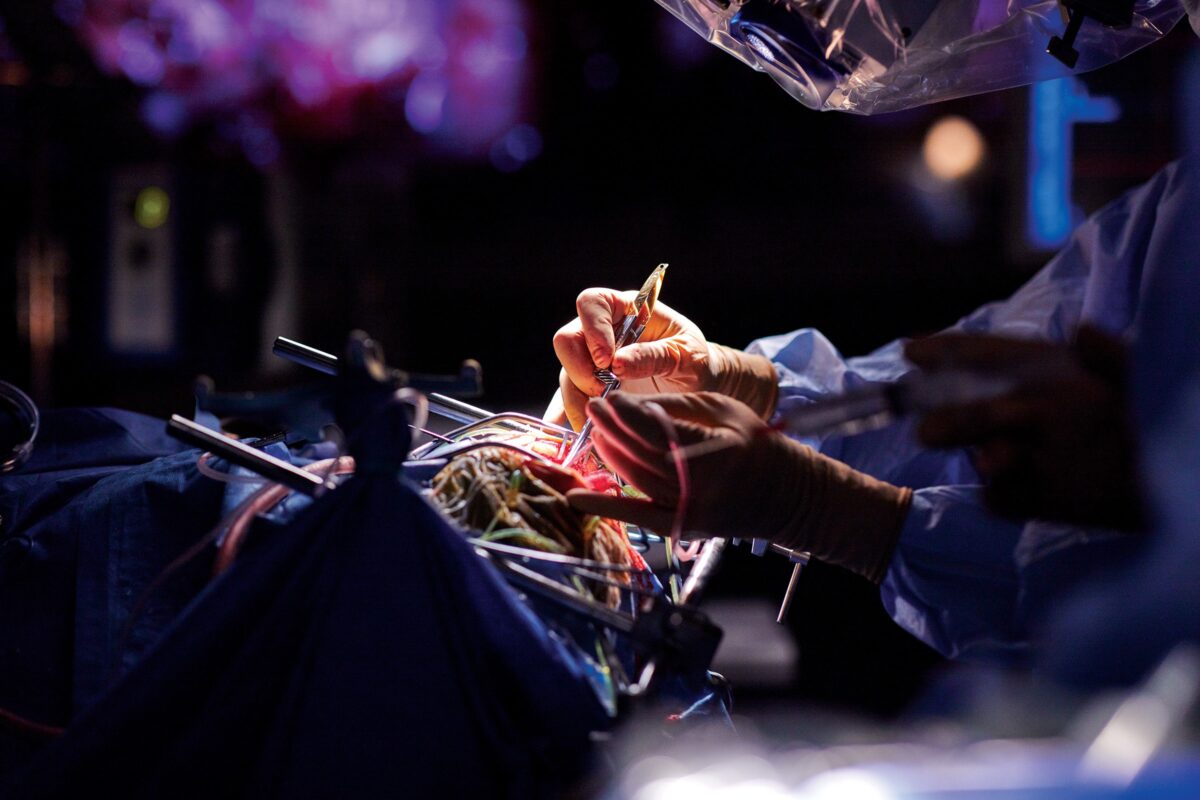
Brain tumors are among the most challenging cancers to effectively treat. Depending on the tumor’s location, surgery can interfere with cognitive function, movement or language, and surgery often is not the solution because the tumor cells are invasive and intertwined with normal brain cells. Additionally, the brain’s natural protective barrier prevents chemotherapy drugs from reaching the brain.
Leading WashU Medicine physicians and researchers at Siteman Cancer Center meet these challenges head-on through a collaborative team effort that includes medical oncology, neurosurgery, radiation oncology, neurology, cancer biology, immunology, pathology, engineering, genetics, and imaging sciences. These powerful partnerships have come together at the Siteman Brain Tumor Center, which launched in 2021, and has emerged as a nationally recognized program focused on developing and evaluating new therapeutics to help improve patient survival.
“We bring together clinicians and researchers from varying disciplines to work toward the best possible outcomes for our patients, starting from high-level research that leads directly to clinical innovations that improve patient care,” said Albert H. Kim, MD, PhD, the August A. Busch Jr. Professor of Neurological Surgery at WashU Medicine and director of the Siteman Brain Tumor Center. “Our unique infrastructure breaks through barriers, drives innovation through collaboration, and positions us to revolutionize our understanding of brain tumor biology and treatment.”
WashU Medicine investigators are actively participating in dozens of clinical trials, including efforts led by Milan G. Chheda, MD, an associate professor of medicine at WashU Medicine and director of neuro-oncology at WashU Medicine and Siteman, to evaluate immunotherapies and targeted therapies for brain tumors, and by Jiayi Huang, MD, an associate professor of radiation oncology and co-director of the Siteman Brain Tumor Center, to optimize radiation therapy for glioblastoma, one of the most aggressive brain tumors. These groundbreaking innovations are made possible by the unique clinical expertise of WashU Medicine physicians at the Siteman Brain Tumor Center, the only center regionally offering a full spectrum of surgical, systemic and radiation therapy options, helping lead to more effective therapies and better outcomes for patients.

“Because of the center’s integration of research and patient care, discoveries can more rapidly move into the clinic,” said Alexander H. Stegh, PhD, a professor of neurosurgery and the center’s director of research. For instance, Stegh’s research within the center’s brain tumor technology program has led to a first-in-human clinical trial of investigational nanotherapeutics for glioblastoma. His technology uses nanoparticles that are designed to cross the blood-brain barrier and activate the immune system to fight tumors or deliver precision medicine intended to stop tumor growth.
“The focus on neuroscience research and on defeating cancer here at WashU Medicine is truly sparking change,” Kim said. “The expertise and drive that our team and our many collaborators have to conquer brain tumors are making a significant difference in the field for current and future patients.”
Explore the extensive scope of cancer care and research.
Published in the Autumn 2024 issue


